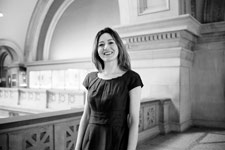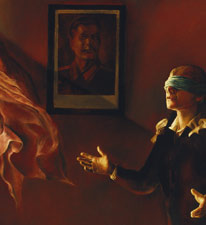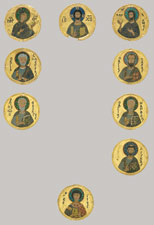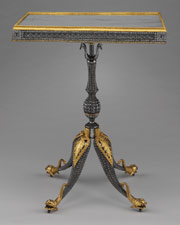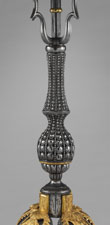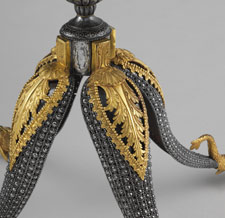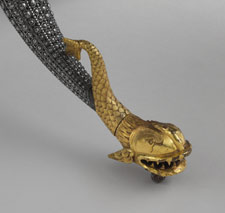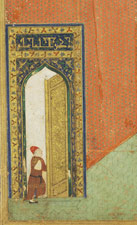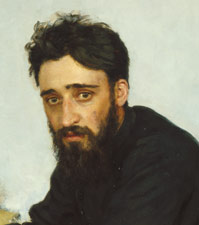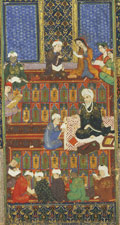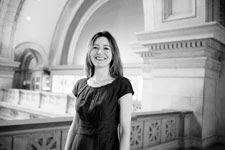New Connections appear every Wednesday. Sign up for a reminder.
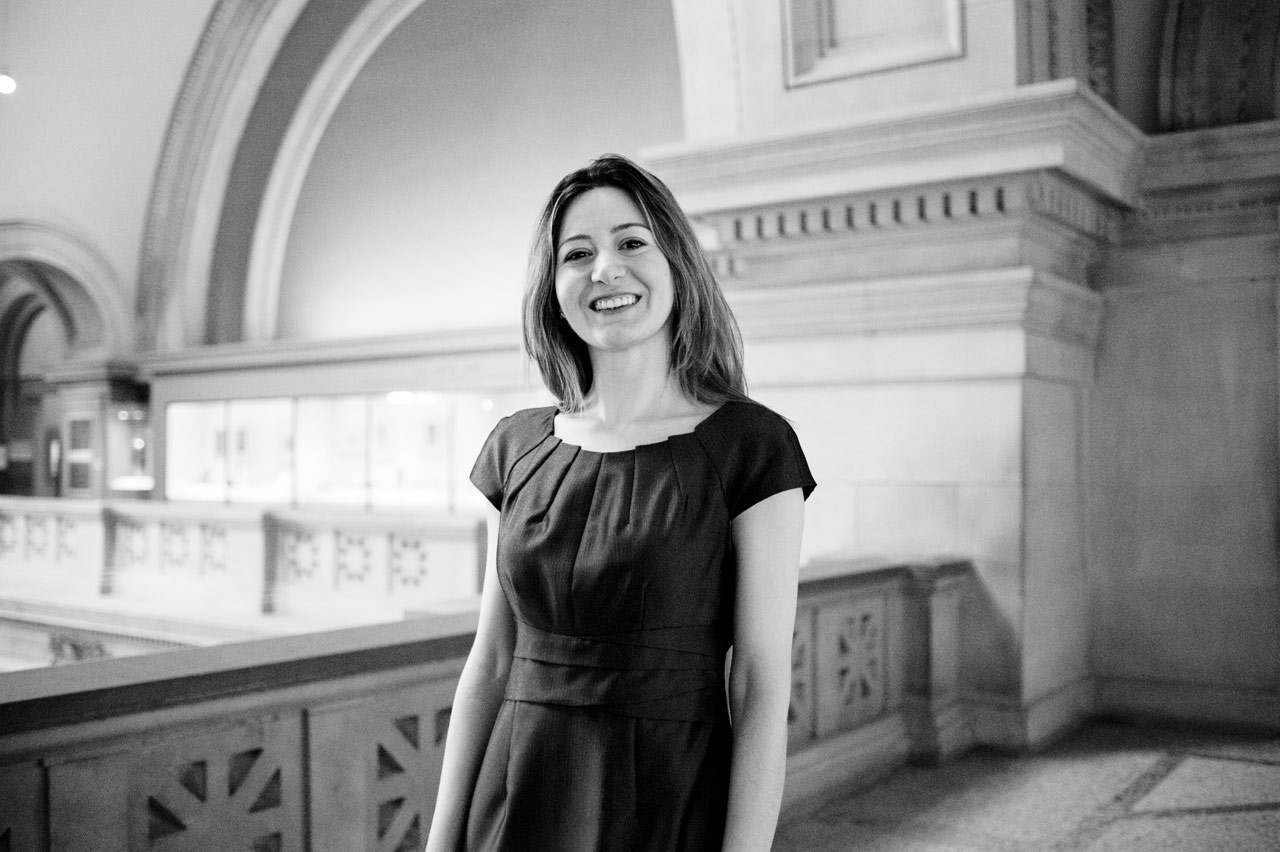 1280852
1280852 8141024
8141024 12711024
12711024 1280906
1280906 6661024
6661024 9381024
9381024 650624
650624 10161024
10161024 10151024
10151024 10161024
10161024 10161024
10161024 7021024
7021024 10341024
10341024 9311024
9311024 8201024
8201024 4991024
4991024 10551024
10551024 10821024
10821024 8611024
8611024 6621024
6621024 7051024
7051024 7511024
7511024 552909
552909 7931024
7931024 9051024
9051024 5481024
5481024 1280852
1280852
My name is Mariam Otkhmezuri. I'm a volunteer at the Met, and my topic is Georgia. We Georgians call ourselves different names, it's an English name.
Many people associate the name with Georgia O'Keeffe. Other people think about
the state Georgia. When I start learning English, at the time it was still Soviet Union, Gorbachev's policies became a little bit looser. That's when
we start finding out more about the United States and the song "Georgia on My Mind" by Ray Charles. We loved it. I thought he was singing about us.
What people know about Georgia is that Stalin was Georgian. There are ambivalent feelings about Joseph Stalin in Georgia. Many consider that he was a great leader who transformed Soviet Union from a backward country into a superpower
but hardly anyone denies that it was a tyrannical regime where people suffered. There was still a monument of Stalin in his birthplace and I've recently heard that they've taken it down. That was the only monument that existed.
After the collapse of the Soviet Union, Georgia emerged as an independent country in 1991.
Since then, looking for national identity has been an important issue.
These are Byzantine medallions that once were part of a frame of an icon.
In the western part of Georgia, it was a spiritual center for centuries and
it enjoyed patronage from local princes and nobility. My ancestors are from that region.
So I'd like to think that my ancestors had an opportunity to see the icon in its full splendor.
As an independent nation there is intense thinking and rethinking of Georgia's place in the world. Scholars and historians need to be very careful when they use archaeological findings.
It cannot be used to promote national politics. You cannot really assign to any ethnic group who really made this. We have an opportunity to see it and we need to try to understand what was going on in Near East at that time.
The Tula table was ordered by Catherine the Great at the time when our kingdom
really asked for protection against the Persians.
The armory not only made furniture and beautiful objects, but it also made cannons and rifles.
One thing we need to remember is that Georgia depended
on other nations for its security, so it would find allies among potential enemies.
Daggers are indispensable accessory of male traditional clothing. It reminds me of resistance that ethnic groups of North Caucasus showed to Russians and current resistance happening in Dagestan and Chechnya.
Georgia had very interesting and long relation with Iran historically. Shah cAbbas was the king when Iran's expansion reached its highest point and Georgia became part of Persia.
Persian culture affected Georgian architecture, literature.
Also Georgian motifs became popular in Persia so there was this vigorous cultural exchange.
When I look at this picture I think of Russian radical intelligentsia that made its commitment to serving people. Many Georgian intellectuals were educated in northern universities of Russia, and when they returned home, they
directed their energies to creating beautiful literature, and journalism, and founding schools. Although it's very Georgian and it's very unique, at the same time definitely has Russian influence.
Georgian language is original, it doesn't belong to any other linguistic groups and its alphabet is unique. For Georgians, to communicate in the language became self-preservation. It was the language that really kept us
as Georgians.
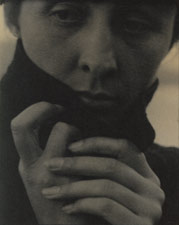 |
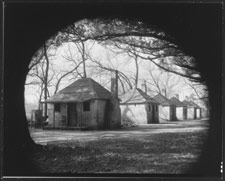 |
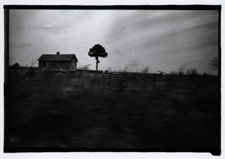 |
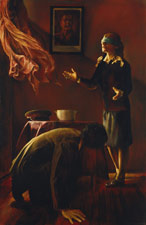 |
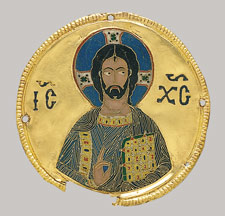 |
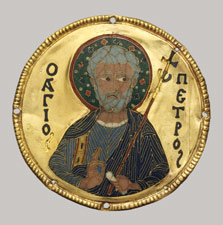 |
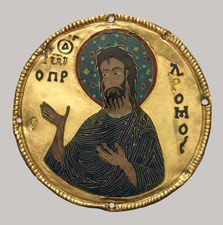 |
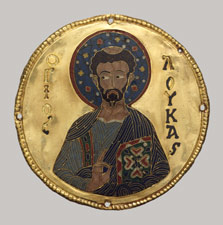 |
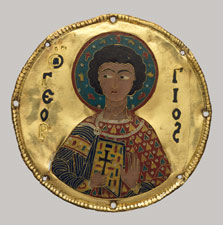 |
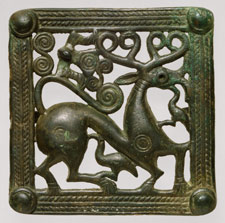 |
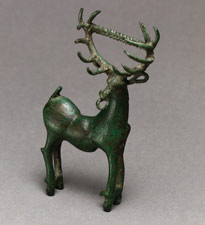 |
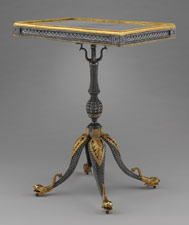 |
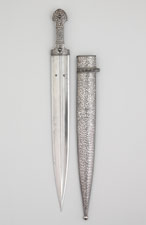 |
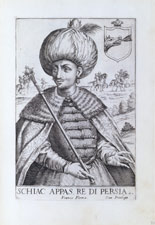 |
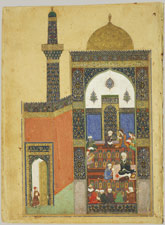 |
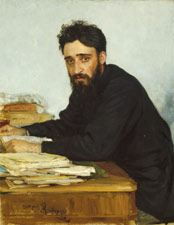 |
Works of art in order of appearanceLast Updated: June 22, 2015. Not all works of art in the Museum's collection may be on view on a particular day. For the most accurate location information, please check this page on the day of your visit. |
||
 |
Georgia O'Keeffe 1918 Alfred Stieglitz (American) Platinum print Gift of Georgia O'Keeffe through the generosity of The Georgia O'Keeffe Foundation and Jennifer and Joseph Duke, 1997 (1997.61.25) More information: The Collection Online Not on view
|
 PhotographsSecond Floor
PhotographsSecond Floor |
 |
[Row of Brick Slave Cabins at Hermitage Plantation, Near Savannah, Georgia] 1935 Walker Evans (American) Film negative Walker Evans Archive, 1994 (1994.258.518) More information: The Collection Online Not on view
|
 PhotographsSecond Floor
PhotographsSecond Floor |
 |
[Wooden House in Field, From Moving Automobile, Macon, Georgia] February 1935 Walker Evans (American) Film negative Walker Evans Archive, 1994 (1994.253.433.15) More information: The Collection Online Not on view
|
 PhotographsSecond Floor
PhotographsSecond Floor |
 |
Blindman's Buff 1982–83 Alexander Melamid (Russian), Vitaly Komar (Russian) Oil on canvas Anonymous Gift, 1991 (1991.466) More information: The Collection Online Not on view
|
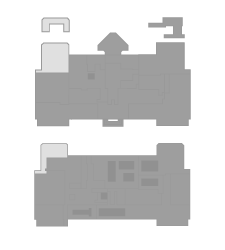 Modern and Contemporary ArtSecond Floor
Modern and Contemporary ArtSecond Floor |
 |
Medallion with Christ from an Icon Frame ca. 1100 Byzantine; From the Djumati Monastery, Georgia (now Republic of Georgia); Made in Constantinople Cloisonné enamel, gold Gift of J. Pierpont Morgan, 1917 (17.190.678) More information: The Collection Online Not on view
|
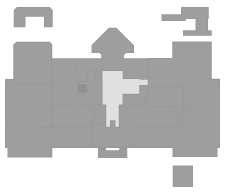 Medieval Art and The CloistersFirst Floor
Medieval Art and The CloistersFirst Floor
|
 |
Medallion with Saint Peter from an Icon Frame ca. 1100 Byzantine; From the Djumati Monastery, Georgia (now Republic of Georgia); Made in Constantinople Cloisonné enamel, gold Gift of J. Pierpont Morgan, 1917 (17.190.670) More information: The Collection Online Not on view
|
 Medieval Art and The CloistersFirst Floor
Medieval Art and The CloistersFirst Floor
|
 |
Medallion with Saint John the Baptist from an Icon Frame ca. 1100 Byzantine; From the Djumati Monastery, Georgia (now Republic of Georgia); Made in Constantinople Cloisonné enamel, gold Gift of J. Pierpont Morgan, 1917 (17.190.677) More information: The Collection Online Not on view
|
 Medieval Art and The CloistersFirst Floor
Medieval Art and The CloistersFirst Floor
|
 |
Medallion with Saint Luke from an Icon Frame ca. 1100 Byzantine; From the Djumati Monastery, Georgia (now Republic of Georgia); Made in Constantinople Cloisonné enamel, gold Gift of J. Pierpont Morgan, 1917 (17.190.671) More information: The Collection Online Not on view
|
 Medieval Art and The CloistersFirst Floor
Medieval Art and The CloistersFirst Floor
|
 |
Medallion with Saint George from an Icon Frame ca. 1100 Byzantine; From the Djumati Monastery, Georgia (now Republic of Georgia); Made in Constantinople Cloisonné enamel, gold Gift of J. Pierpont Morgan, 1917 (17.190.674) More information: The Collection Online Not on view
|
 Medieval Art and The CloistersFirst Floor
Medieval Art and The CloistersFirst Floor
|
 |
Belt clasp 1st–3rd century a.d. Caucasus region (Georgia) Bronze Rogers Fund, 1921 (21.166.5) More information: The Collection Online Not on view
|
 Ancient Near Eastern ArtSecond Floor
Ancient Near Eastern ArtSecond Floor |
 |
Brooch in the form of a stag late 3rd–early 4th century Caucasus region (Georgia) Bronze Rogers Fund, 1921 (21.166.3) More information: The Collection Online Not on view
|
 Ancient Near Eastern ArtSecond Floor
Ancient Near Eastern ArtSecond Floor |
 |
Center table ca. 1780–85 Russia (Tula, Imperial Armory) Steel, silver, gilded copper, gilded brass, basswood, mirror glass (replacement) Purchase, The Annenberg Foundation Gift, 2002 (2002.115) More information: The Collection Online Not on view
|
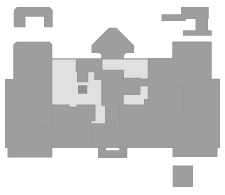 European Sculpture and Decorative ArtsFirst Floor
European Sculpture and Decorative ArtsFirst Floor |
 |
Dagger 19th century Caucasian Steel, wood, silver, niello Bequest of Stephen Whitney Phoenix, 1881 (81.1.599) More information: The Collection Online Not on view
|
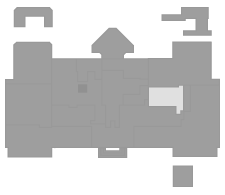 Arms and ArmorFirst Floor
Arms and ArmorFirst Floor |
 |
Schiac Appas, Re di Persia (Shah cAbbas, King of Persia) Publisher: Giacomo Franco, Venice, 1596 Engraver: Giacomo Franco (Italian, Venetian) The Elisha Whittelsey Collection, The Elisha Whittelsey Fund, 1957 (57.506) More information: The Collection Online Not on view
|
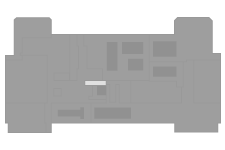 Drawings and PrintsSecond Floor
Drawings and PrintsSecond Floor |
 |
Laila and Majnun at School: Page from the Khamsa of Nizami (Quintet of Nizami) A.H. 835 /1431–32 a.d. Artist: possibly Mir Khalil; calligrapher: Ja'far Herat, present-day Afghanistan Ink, opaque watercolors, and gold on paper Purchase, Lila Acheson Wallace Gift, 1994 (1994.232.4) More information: The Collection Online Not on view
|
 Islamic ArtSecond Floor
Islamic ArtSecond Floor |
 |
Vsevolod Mikhailovich Garshin (1855–1888) 1884 Ilia Efimovich Repin (Russian) Oil on canvas Gift of Humanities Fund Inc., 1972 (1972.145.2) More information: The Collection Online Not on view
|
 Modern and Contemporary ArtSecond Floor
Modern and Contemporary ArtSecond Floor |
© 2011 The Metropolitan Museum of Art |
||
